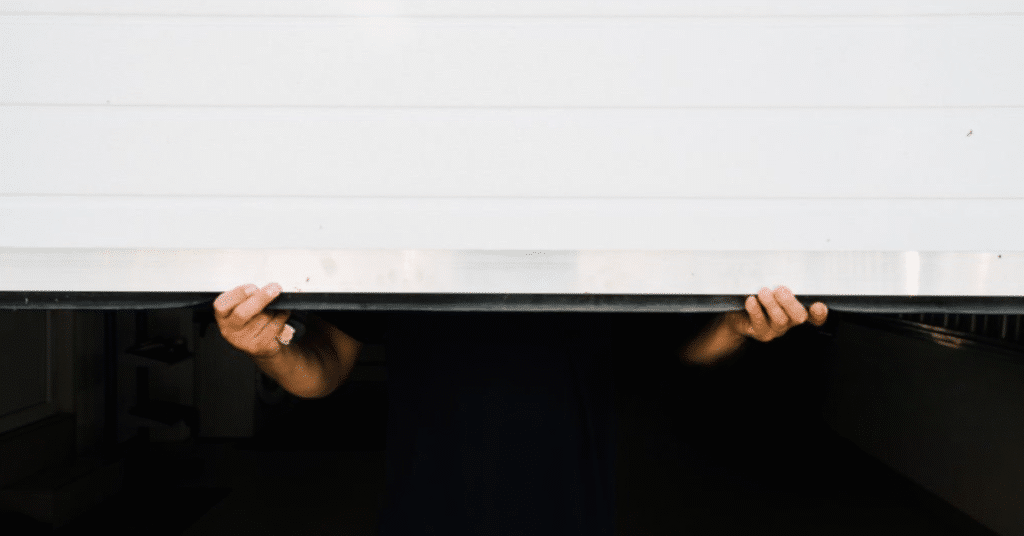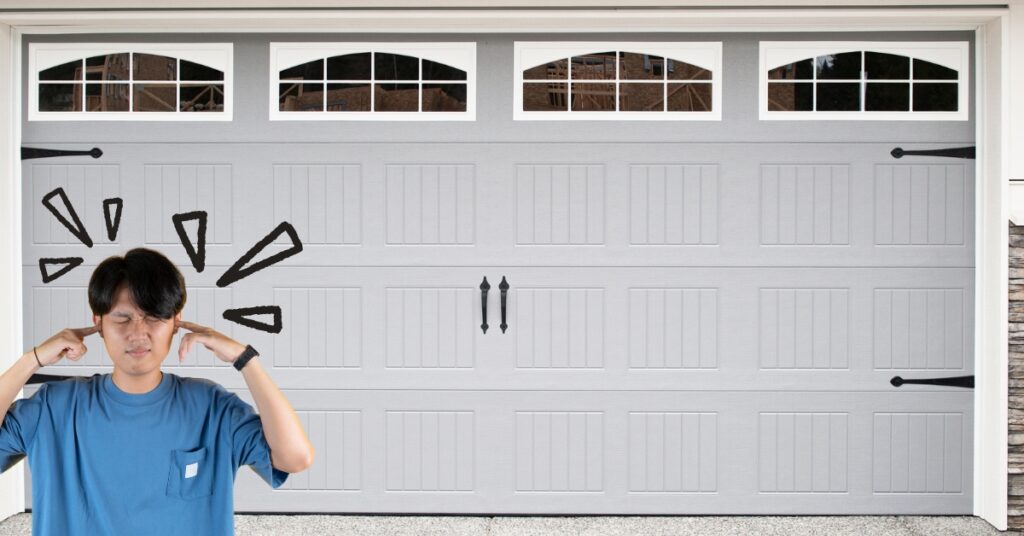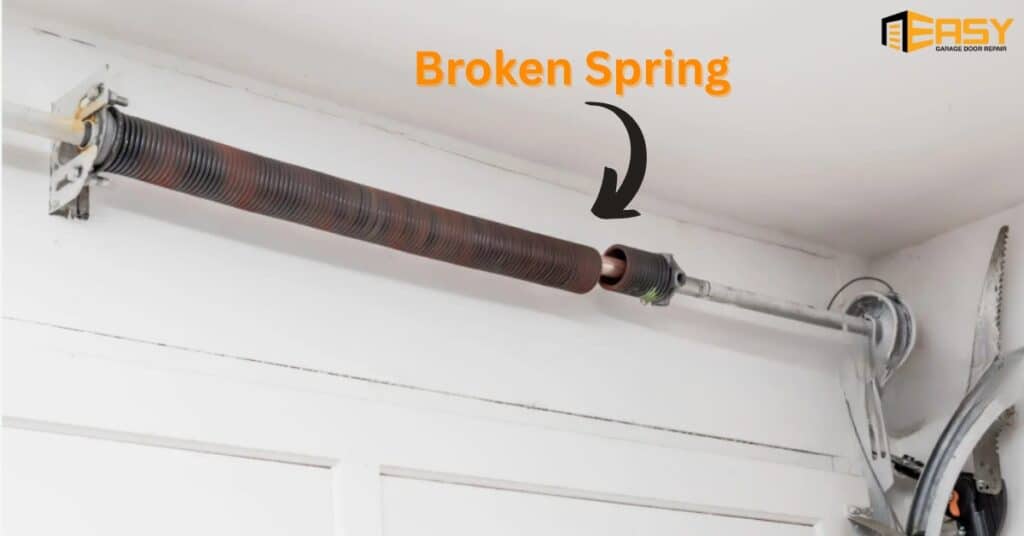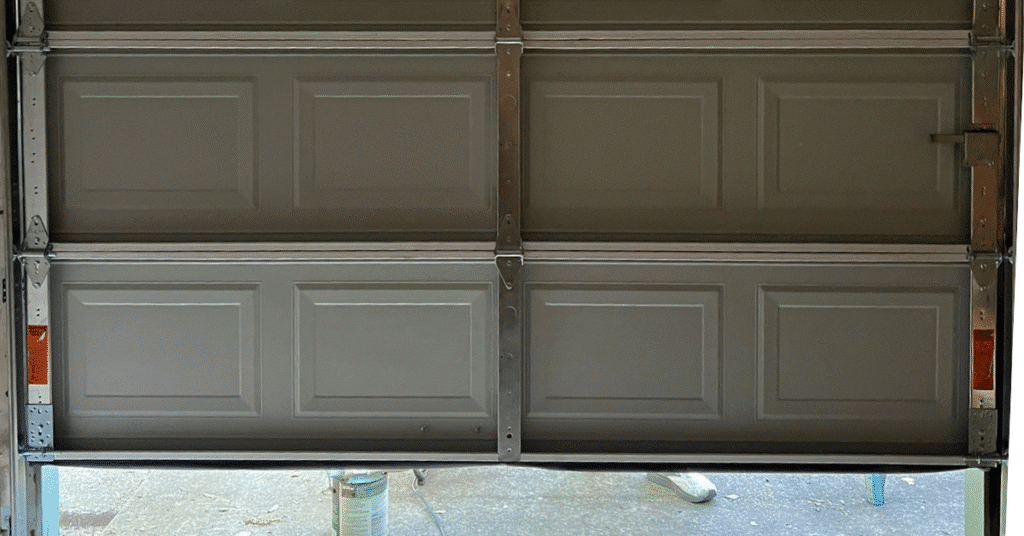The garage door is an essential part of everyone’s daily life. If it works properly, you probably don’t give it a second thought. But if it doesn’t work properly, that fact soon intrudes on your consciousness. If a garage door is going to break, it seems to me it would be most likely to break in the morning, just when you need it to work the most.
If you’re finding it hard to lift the door by hand, or you’re hearing strange sounds such as grinding or popping, your springs may be on the verge of failing. Not only does this threaten the usability of your door, but it could also lead to more extensive repairs if the problem isn’t fixed soon. Here are some signs that your springs are broken.
How to tell if the garage door spring is broken
Recognizing the signs of a broken garage door spring allows you to address issues promptly. Look for these specific symptoms:
1. Garage Door Feels Heavier Than Usual

Garage door springs act as high-tension counterweights, managing the majority of the door’s weight. Torsion springs store energy by twisting above the door, while extension springs assist with balance along the sides. When springs become faulty, you’ll bear the door’s full weight.
Common causes include snapped torsion springs, stretched extension springs, corrosion, or simply age. To test for spring failure:
- Caution: Only perform this if the door is closed and you’re physically able.
- Pull the emergency release cord to disconnect the opener.
- Slowly lift the garage door by hand.
If the door feels much denser than it should, a broken spring necessitates urgent repair. This is one of the most obvious failures of a spring that you can readily check at home for your safety.
2. Loud Noise During Operation
Springs in garage doors are copiously coiled to contain a large amount of energy. When a coil spring lets go, it does so with a pop that is best associated with the sound made when one fires a gun. And the noise happens whether the door is in motion or not, and especially at night or in cold weather, because that’s when the springs are most likely to snap.
Key points to note:
- The sudden release of energy causes coils to separate and hit nearby metal parts.
- You might hear this sound frequently during cold nights or when no one is operating the door.
- Sounds may emanate from either end of the garage, particularly near the springs.
While the sound may pique your curiosity, avoid approaching the springs immediately after hearing it. The safest course of action is to contact a licensed technician for an inspection.

3. Garage Door Opens with Jerks
If your garage door shows lopsided or jerky movement, that points to spring issues. Jerky movements are a clear sign that your garage door springs are broken. Even tension distribution is a must for a working garage door, and when one or more garage door springs are broken, that vital evenness just isn’t there.
Indicators include:
- The door is tilting to one side or moving in sudden jolts.
- A noticeable catch when the door changes direction.
- Potential fraying of cables, popping rollers, or bending of tracks.
Ignoring jerky movement can escalate issues quickly, resulting in more extensive damage and increased repair costs. To inspect:
- Take a short video if you notice any wobbling or tilting, which you can share with a technician for quicker diagnosis.
- Observe your door while it opens and closes.
4. Visible Gap in the Spring

Check the torsion springs high above the door to see if they are tightly wound. If you can see a gap 2 inches or more across, then the spring has probably broken. When it is in good working condition, a spring should be wound tightly and should not show separation.
For extension springs, look for signs of stretching, looseness, or tangling around safety cables.
- Always check both springs, even if only one side seems problematic.
- Use a flashlight to identify critical cracks in low-light conditions. About 60% of failures occur on the less visible side.
If you find a gap in the spring, arrange for professional inspection and replacement services.
5. Garage Door Stops Midway or Doesn’t Open Fully
When a spring fails in a garage door, the door loses its lifting help and becomes dead weight. As a result, the opener struggles. The door may stop midway or fail to open at all.
This situation threatens the door’s function and could put a strain on the opener motor, potentially causing it to burn out in less than a week. If your door only opens partially (6-12 inches) before stalling:
- Disconnect the opener using the manual release cord.
- Avoid repeated attempts to open the door, as this can further damage the opener.
Keep the door closed and contact a trained technician as soon as possible. Timely action reduces repair costs and enhances safety.

5. Signs of Rust on the Springs
A garage door spring affected by rust has likely been exposed to prolonged moisture, which is detrimental to metal components. Moisture accelerates oxidation, leading to surface rust and, in severe cases, extensive corrosion. Rust compromises the structural integrity of garage door springs, significantly weakening them and increasing the likelihood of failure, potentially causing issues during operation or creating safety hazards. To ensure optimal performance and safety, it is recommended to inspect your garage door springs for any signs of rust at least twice a year.
What causes garage door spring failure
Garage door springs fail due to several factors, including natural wear and tear, environmental conditions, installation issues, and maintenance neglect.
1. Natural Wear and Tear (10,000 Cycle Lifespan)
Every garage door spring has a predetermined lifespan, typically rated for about 10,000 cycles, with one cycle representing a complete open and close. If you open your garage door four times a day, that results in nearly 1,500 cycles per year. Consequently, within 6–7 years, your springs will likely approach the end of their life. Over time, metal undergoes fatigue, tension diminishes, and eventually, the springs snap. This kind of failure remains unavoidable due to consistent usage.
2. Rust and Corrosion
Moisture silently deteriorates metal springs. When humidity levels rise, rust forms quickly, eroding the steel. This weakening leads to tiny cracks that eventually cause breakage. Rusty springs break sooner and produce more noise during operation. To safeguard your springs, apply a high-quality garage door lubricant every few months. Corrosion issues frequently occur in coastal areas and garages lacking insulation, often within 3–4 years.
3. Cold Temperatures
Winter conditions are harsh on garage door springs. Low temperatures cause metal contraction, which can leave garage doors stuck. Steel becomes brittle at temperatures below 20°F, and springs often break early in the morning after sitting in the cold overnight. If you reside in a colder climate, take additional precautions during winter:
- Winterize your garage door or provide slight heat if possible.
- Regularly lubricate springs to minimize friction and brittleness.
- Listen for unusual sounds during cold mornings.
4. Poor Installation or Wrong Spring Size
Incorrect spring size leads to early burnout, while the absence of safety cables can turn failures into dangerous shrapnel. It’s vital to ensure proper measurements; if your installer did not assess the door’s weight, they likely guessed. Using the wrong type or size of spring causes strain on the entire system. If the spring is too weak for your door’s weight, it extends beyond its limits. If too strong, the door may not close properly. Our licensed technician can accurately weigh your door and determine the appropriate spring strength.
5. Lack of Lubrication or Routine Maintenance
Inattention to lubrication presents one of the simplest causes of spring failure, yet it remains frequently overlooked. Without proper lubrication, springs deteriorate faster. Friction between coils generates heat, contributing to metal weakening. Unlubricated springs may twist, warp, or bind instead of breaking cleanly. Establish a routine every 3–4 months:
- Lubricate the springs, rollers, and hinges.
- Inspect for visible wear or misalignment.
- Listen for squeaks or rattles while opening the door.
This simple maintenance takes less than 10 minutes and can extend your spring’s life by up to 2 years. Properly maintained torsion springs can surpass their rated cycles by 20%, resulting in an additional 2-3 years of service from basic care.
When to Call a Professional
If you notice any of the symptoms of broken garage door springs, it’s essential to call a professional technician. Delaying repairs can lead to greater damage and safety risks. Our professional will help you with:
- Constant Noises: If you hear grinding, popping, or banging noises during operation, these sounds signal underlying issues. Such noises often indicate stress on the spring mechanism.
- Difficulty Operating the Door: Struggling to lift or lower the garage door manually suggests that the springs may be compromised. This issue can exacerbate over time and lead to further complications.
- Visible Damage: If you spot gaps in the springs or signs of rust, immediate action is necessary. These visual indicators often point to significant wear and may result in an eventual breakage.
- Door Imbalance: If the door tilts to one side while opening or closing, this imbalance reveals that the tension in the springs is uneven. Addressing this situation promptly can prevent additional mechanical problems.
- Rapid Closure: If the garage door closes faster than normal, this could signify broken springs. This situation poses a safety risk, as sudden door closures can endanger anyone nearby.
Dealing with garage door springs requires specialized knowledge and tools. Attempting repairs on your own, especially when working with high-tension components, poses a significant danger. Always prioritize your safety and rely on our qualified professionals who can assess and resolve the issue effectively.
Sum Up
Recognizing the symptoms of broken garage door springs is game game-changer for maintaining your garage door’s functionality and safety. By staying alert to signs like unusual noises and difficulty in operation, you can address issues before they escalate. Remember that timely intervention not only prevents further damage but also ensures your garage door operates smoothly.
If you notice any of these symptoms, don’t hesitate to contact us directly at 832-570-3845. Our experts will help you safely resolve the problem and restore your garage door to optimal performance. Prioritizing maintenance and being proactive can save you time and money in the long run. Keep your garage door in top shape and enjoy the peace of mind that comes with a well-functioning system.








